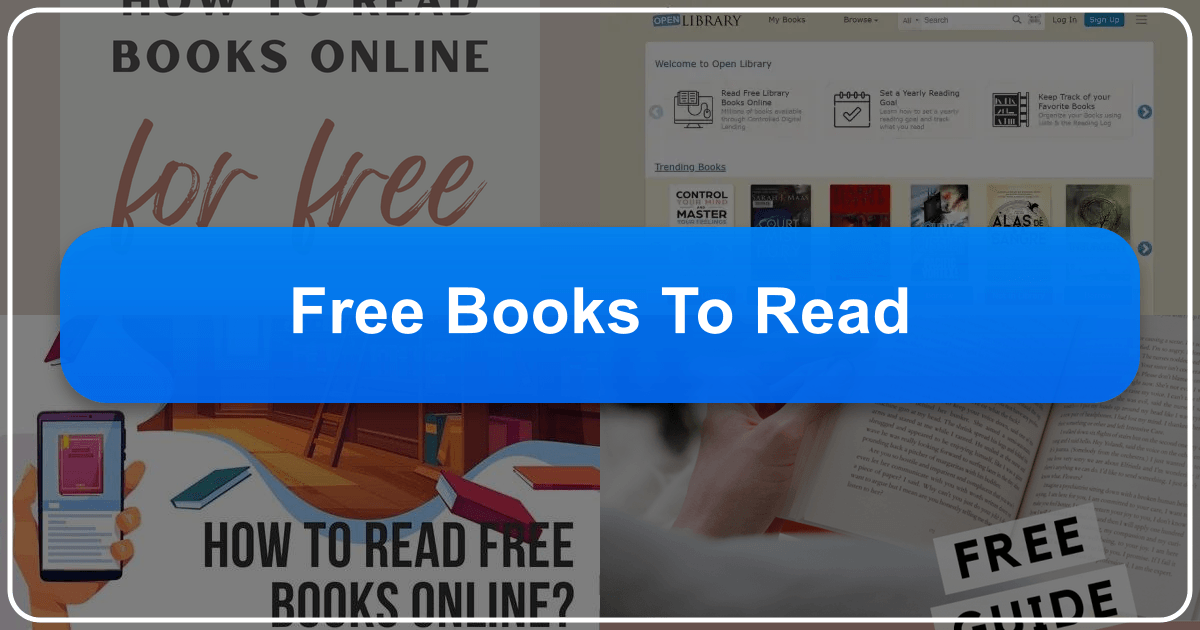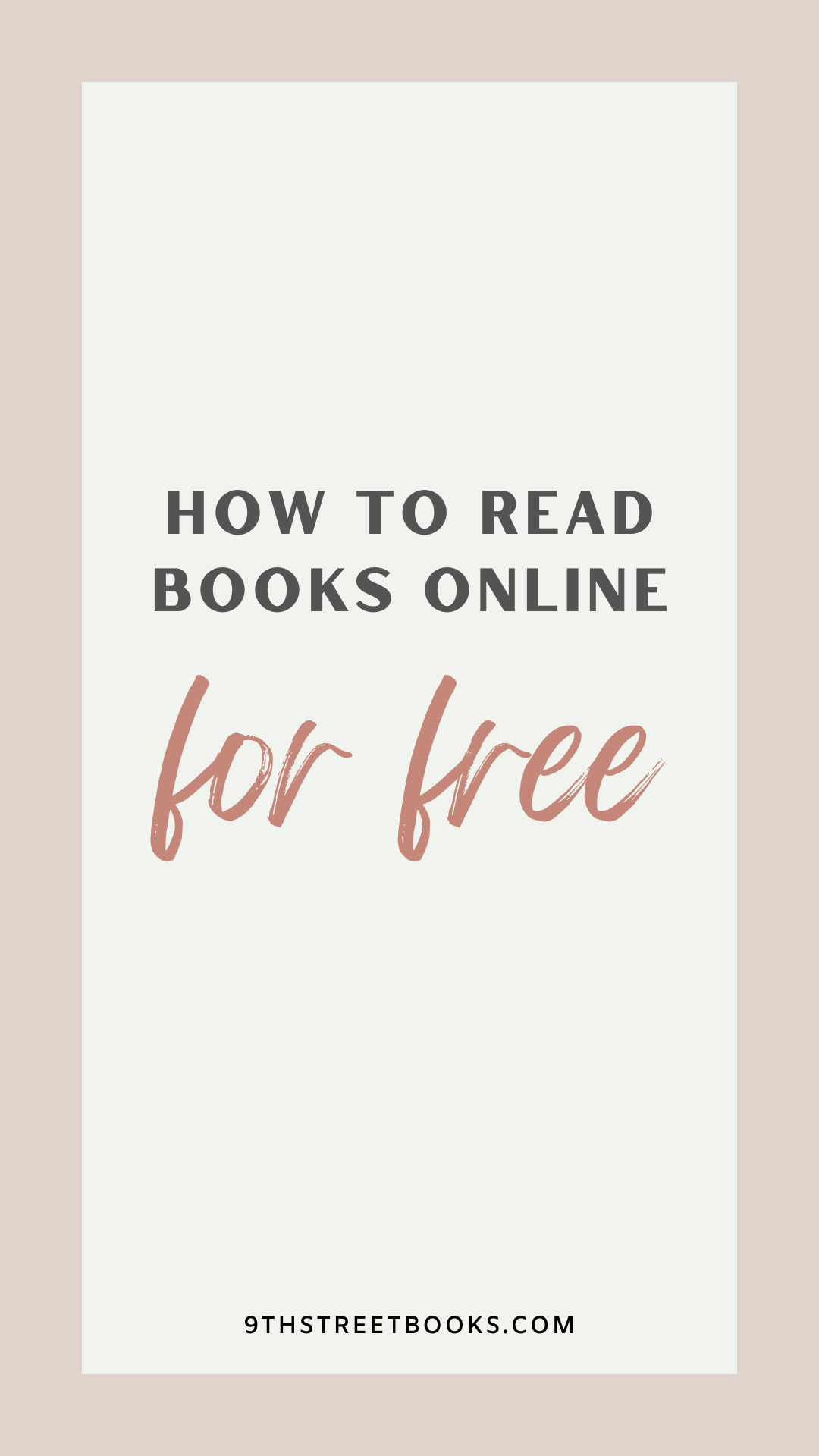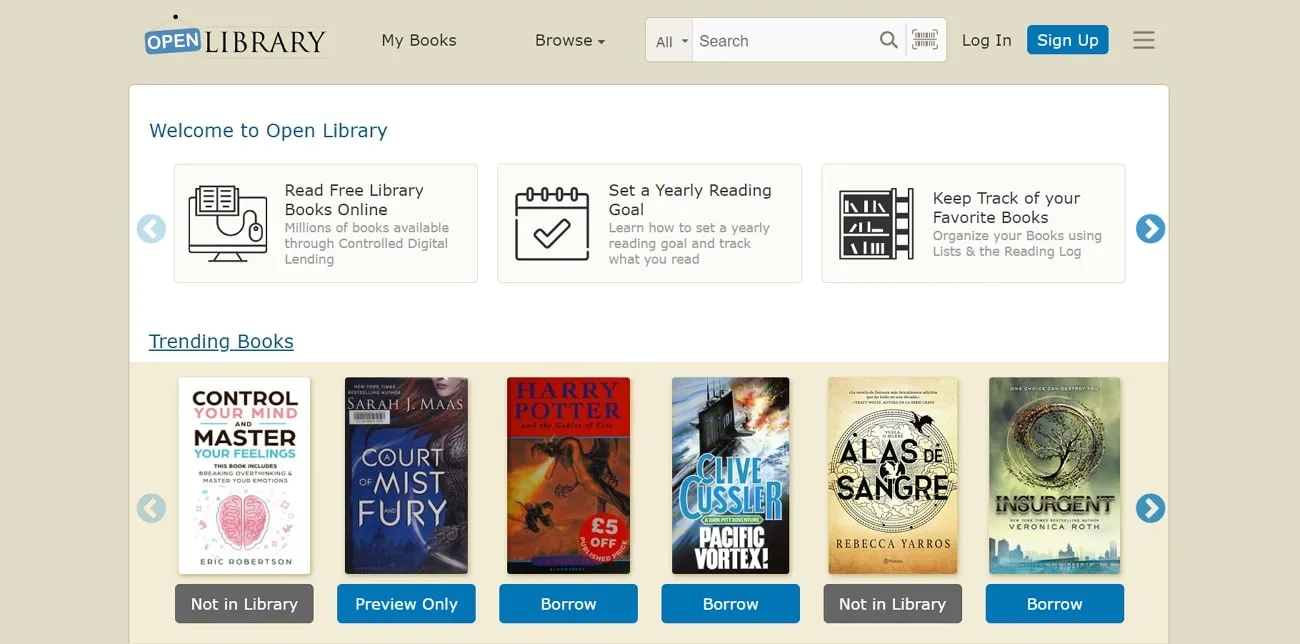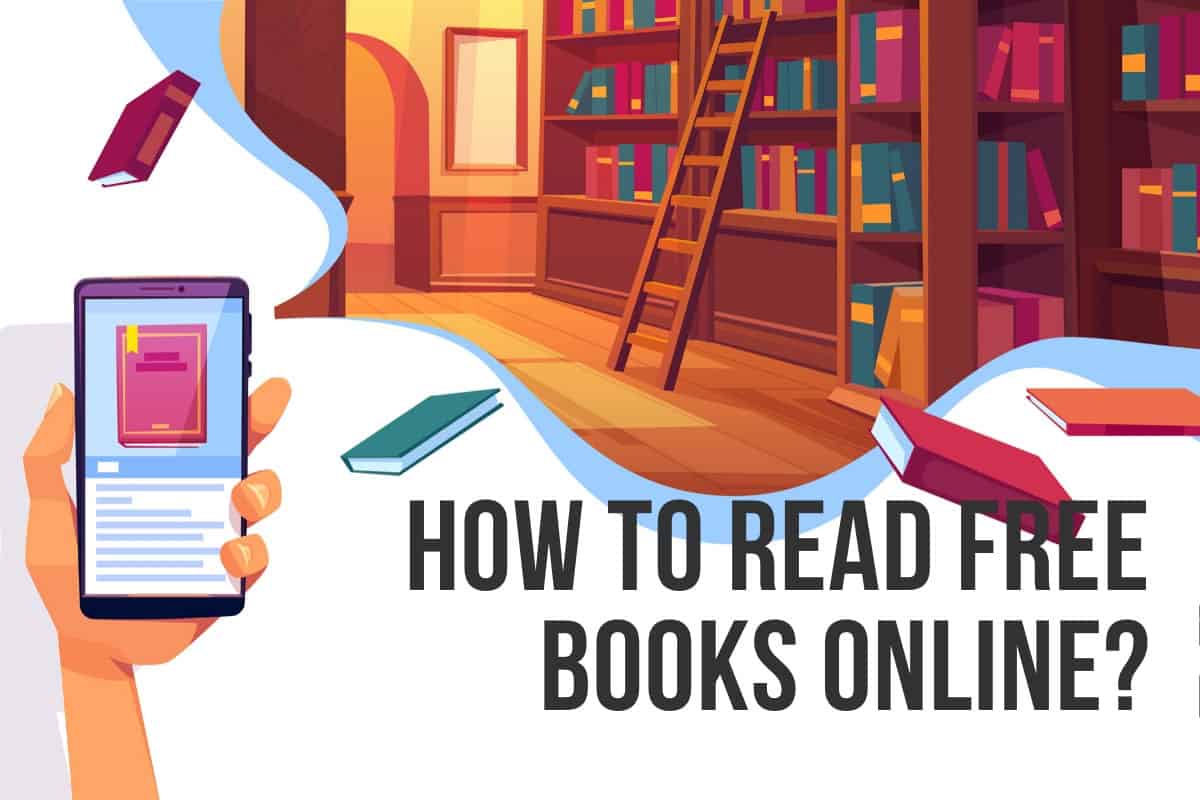Free Books to Read: A Comprehensive Guide to Legitimate Online Resources

The allure of free books is undeniable. Whether you’re a seasoned bibliophile or a casual reader, accessing books without financial burden opens up a world of literary possibilities. However, the pursuit of free books necessitates caution. While numerous websites offer free downloads, many operate in legal gray areas, jeopardizing authors’ livelihoods and the integrity of the publishing industry. This comprehensive guide navigates the landscape of legitimately accessible free books online, providing a safe and ethical path to enriching your reading experience. We will explore various platforms offering free ebooks, audiobooks, and library resources, emphasizing ethical and legal considerations throughout.
Part 1: Ethical Access to Free Books Online
The availability of free books hinges largely on copyright law. Works enter the public domain after their copyright expires, typically 70 years after the author’s death. This legal lapse grants the public unrestricted access to these materials. Several reputable organizations specialize in digitizing and offering these public domain books:
1. Project Gutenberg: The Pioneer of Digital Books
Project Gutenberg stands as the undisputed pioneer in the digital book revolution. Launched in 1971, it boasts a vast collection of over 60,000 public domain books, encompassing classics across numerous genres. The website, while visually dated, offers a straightforward interface. Users can download books in various formats or read them directly within their browser. Its substantial catalog makes it an invaluable resource for those seeking classic literature. Project Gutenberg’s prominence has influenced many other free ebook platforms, cementing its place in literary history.

2. Internet Archive: A Digital Library of Unparalleled Scope
The Internet Archive is a non-profit digital library offering free access to a wide array of digital materials, including books, images, audio, and video. Its book collection surpasses 25 million items, significantly expanding beyond public domain works to include many contemporary ebooks available for free borrowing with registration. The Archive’s robust search functionality allows users to refine searches by collection, media type, language, and creator, facilitating the discovery of obscure or specific titles. The platform also offers a text-to-speech feature, transforming digital text into audio for convenient listening. The integration of scanned pages in the online viewer provides a unique experience, preserving the original book’s aesthetic appeal.
3. Open Library: A Collaborative Catalog of Global Books

A collaborative project of the Internet Archive, Open Library aims to create a web page for every book ever published. While not all books are available for immediate online reading, Open Library offers millions of “accessible” books, which are either freely available to read or download. The platform boasts a user-friendly interface, simplifying the search process compared to the Internet Archive’s expansive catalog. The inclusion of both classic and contemporary titles makes it a versatile option.
4. Google Books: A Search-Centric Approach to Free Ebooks
Google Books provides access to a massive collection of digitized books. While not every title is available in its entirety, users can locate free eBooks or preview free samples from copyrighted books. Google Books’ strength lies in its search functionality. Users can narrow their results to books completely accessible for free online reading by selecting the appropriate filter. The platform’s search-centric design is effective for finding specific titles but requires users to utilize the filter options to limit searches to freely accessible content.

5. Smashwords: Independent Authors and Free Reads
Smashwords is a platform for independent authors and publishers. While predominantly offering paid ebooks, Smashwords features a significant selection of free ebooks. The website allows authors to determine the length of free previews offered to readers. Many opt to provide full-length access to their books, increasing the availability of free content. Smashwords also offers customization options within its online reader, allowing adjustments to font size and style, and background color.
6. ManyBooks: A User-Friendly Interface for a Broad Selection
ManyBooks provides a user-friendly interface for browsing and accessing free ebooks. The site relies primarily on public domain books and Creative Commons licensed works. Its collection, exceeding 50,000 titles, offers a broad range of genres and authors. ManyBooks provides an easily navigable interface that includes a “Read Online” option for each book, promoting seamless direct reading within the browser.
7. BookRix: A Blend of Self-Published and Public Domain Works
BookRix combines self-published ebooks with works from the public domain. It features a user-friendly interface and a substantial collection of free books categorized by genre and popularity. BookRix showcases both classic literature and contemporary offerings from independent writers.
8. Authorama: Quick Loading and Classic Literature
Authorama, while possessing a smaller collection compared to some of its counterparts, compensates with its speed and simplicity. It focuses on a selection of popular titles from Project Gutenberg, ensuring quick loading times even on slower internet connections.
9. Bookboon: Textbooks and Professional Resources
Bookboon offers free textbooks and other professional development resources. While access requires registration, the platform offers numerous titles to download or read online. The range of subjects covers technical fields such as engineering and IT, and business-related areas.
10. Wattpad: A Platform for Emerging Writers
Wattpad is a platform where emerging and established writers publish their works. While it promotes paid stories, a large portion of its content is freely available to registered users. Its diverse genres range from romance and adventure to fan fiction and more.
11. Library of Congress: Preserving Children’s Classics
The Library of Congress offers a digital collection of children’s classics. This collection, though smaller than others, features beautifully digitized versions of beloved tales. The focus on visually appealing presentations and original works enhances the reading experience for children.
12. HathiTrust Digital Library: A Collaborative Archive
HathiTrust, a collaborative digital archive of academic and research libraries, provides access to millions of books and texts. The site features a user-friendly search engine, enabling users to efficiently find full-text, full-view books for online reading.
Part 2: Exploring Library Resources for Free Books
Public libraries remain invaluable resources for accessing books at no cost. Many libraries have expanded their services to include digital lending through platforms like Libby:
Libby App: Digital Access to Your Local Library
The Libby app (by OverDrive) allows users to borrow ebooks and audiobooks directly from their local libraries. The app’s intuitive interface facilitates easy searching and borrowing, offering a digital extension of traditional library services. This convenience extends the reach of libraries to those who may not have easy physical access or prefer digital formats.
Part 3: Advantages and Disadvantages of Reading Books Online
Reading online presents several advantages and disadvantages compared to traditional print books:
Advantages:
- Cost-effectiveness: Accessing digital books online is often free or significantly cheaper than purchasing physical copies.
- Accessibility: Digital libraries offer books from across the globe, expanding accessibility beyond geographical limitations.
- Environmental friendliness: Digital books reduce the need for paper and printing, decreasing the environmental impact.
- Convenience: Online books are readily available on various devices, eliminating the need for physical storage.
- Interactive features: Digital books may offer features like highlighting, note-taking, and customized fonts.
Disadvantages:
- Health implications: Excessive screen time can negatively impact eye health and overall well-being.
- Technological dependence: Online reading requires internet connectivity and functioning devices.
- Distractions: Online reading environments can be susceptible to distractions from other applications or notifications.
- Ownership limitations: Digital books are often licensed rather than owned, limiting users’ control over access.
Conclusion: A Responsible Approach to Free Online Reading
The abundance of free books online presents a wealth of opportunities for readers. However, a responsible and ethical approach is crucial. This guide highlights legitimate sources for obtaining free books while respecting the rights of authors and publishers. By utilizing public domain resources, library services, and reputable platforms, readers can enjoy the benefits of free online reading without compromising ethical considerations. Remember to always check copyright information and utilize only legitimate platforms. Happy reading!